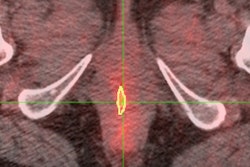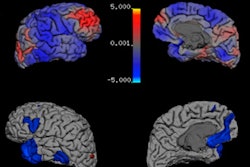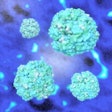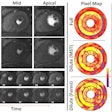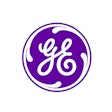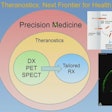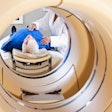Driven by an increasing prevalence of chronic disorders and greater market penetration of PET systems, the global PET scanner sector will grow at a compound annual growth rate (CAGR) of 4.7% between 2016 and 2026, according to a new report by market research firm Future Market Insights.
Growth will be aided by demand for effective diagnostic techniques and expanded applications for PET in oncology, Future Markets Insight said. On the downside, the company expects that the short half-life and limited supply of radiopharmaceuticals will hold back market growth over the forecast period.
The development of PET/CT and PET/MRI scanners has been a key trend, producing better diagnostic sensitivity and specificity at each stage of disease prognosis, according to the firm. The market has also been buoyed by new radiopharmaceuticals, which have led to growing reliance on PET scanning, Future Market Insights said.
In other report findings, the full-ring PET scanner segment produced $759.3 million in revenues in 2015 and is projected to climb at a 4.8% CAGR between 2016 and 2026. In addition, the partial-ring PET scanner segment yielded $143.8 million in revenues in 2016 and will grow to reach $212.2 million by 2026, according to Future Market Insights.
Oncology applications will produce 86.6% market share of the PET scanner market by 2016, while the cardiology application segment will achieve a 5% market share. The company projects that these two segments will be the most lucrative in the global PET scanner market over the forecast period.
By detector type, the lutetium oxyorthosilicate (LSO) segment produced $322.7 million in revenues in 2015 and is projected to grow at a 4.3% CAGR to reach $596.6 million by 2026, according to the company. Meanwhile, the bismuth germanium oxide (BGO) detector type segment had revenues of $266.7 million in 2015 and should climb to reach $400.5 million in revenues by the end of the forecast period.
In terms of end-user market segments, Future Market Insights expects that the hospital segment will hold 35.7% market share by the end of 2016. The diagnostic center segment is expected to contribute a 33% market share.
On a regional basis, North America dominated the global market in 2015 and is likely to retain this position through 2026, according to Future Market Insights. The company expects that the North America sector will increase at a 4.8% CAGR to reach a market valuation of $631.9 million by 2026. In addition, the Asia-Pacific except for Japan (APEJ) market will produce $132.9 million in revenues by 2016 and is slated to grow at a 5.1% CAGR over the forecast period.





